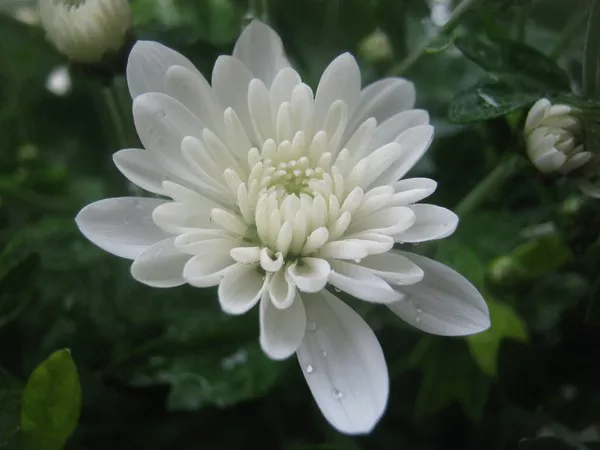Flowers have long held symbolic meanings in various cultures across the world, and peony flowers are no exception. With their vibrant colors, lush petals, and captivating fragrance, peonies have captured the hearts of people for centuries. In this article, we delve into the rich symbolism, cultural significance, and diverse varieties of peony flowers.
The Symbolism of Peony Flowers
Peonies have garnered a diverse range of symbolic meanings across different cultures and historical periods. In many cultures, they are commonly associated with prosperity, good fortune, and happiness. The lush appearance of the peony flower, often resembling a lush, full bloom, has led to its connection with abundance and wealth.
1. Prosperity and Wealth
In Chinese culture, the peony holds a position of great esteem and is often referred to as the “king of flowers” or the “flower of riches and honor.” It symbolizes prosperity, success, and high social status. The vivid colors and full petals of the peony are likened to gold and riches, making it a popular motif in Chinese art, textiles, and even architecture.
2. Romance and Love
Peonies are also associated with romance and love. In Western cultures, the peony is considered a symbol of love, affection, and passion. The delicate beauty of the flower is thought to represent the fragility and strength of romantic relationships.
3. Healing and Compassion
Beyond material wealth and love, peony flowers have also been linked to healing and compassion. In traditional herbal medicine, peony roots have been used for their potential medicinal properties. The flower’s calming and soothing presence has led to its association with compassion and empathy.
Cultural Significance
1. Peonies in Chinese Culture
The peony holds a special place in Chinese culture, where it is revered for its cultural and historical significance. It is a common motif in traditional Chinese paintings, representing honor, wealth, and feminine beauty. The city of Luoyang in China is famous for its annual peony festival, attracting thousands of visitors who come to admire the breathtaking display of peony blooms.
2. Peonies in Japanese Culture
In Japan, peonies are known as “botan” and are also highly regarded. They are often associated with notions of bravery and honor. The “botan-kuruwa” is a type of Japanese garden dedicated to peonies, showcasing the flower’s elegance and charm.
3. Peonies in Western Culture
Peonies made their way to the West from China and were initially introduced as a luxury item for the wealthy. Over time, they became popular in European and American gardens, symbolizing romance and prosperity. Today, peonies are a staple in many Western gardens and are often used in wedding bouquets and floral arrangements.
Varieties of Peony Flowers
Peony flowers come in a variety of types, each with its own unique characteristics and beauty.
1. Herbaceous Peonies
Herbaceous peonies are the most common type, known for their large, lush blooms and a wide range of colors. They die back to the ground in winter and regrow in spring, producing stunning flowers. Varieties include the “Sarah Bernhardt” with soft pink petals and the “Kansas” with deep red blooms.
2. Tree Peonies
Tree peonies, native to China, are small shrub-like plants that produce woody stems. They bear large, often fragrant flowers in a myriad of colors. Tree peonies are admired for their longevity, with some plants living for decades.
3. Intersectional Peonies
Also known as Itoh peonies, these are hybrids between herbaceous and tree peonies. They offer the best of both worlds, combining the robustness of herbaceous varieties with the striking flowers and foliage of tree peonies.
Occasions and Uses
1. Weddings and Celebrations
Peonies are a popular choice for weddings and other celebratory occasions due to their association with romance and happiness. Their lush petals and captivating fragrance make them a favorite for bridal bouquets, table centerpieces, and venue decorations.
2. Healing and Well-being
Beyond aesthetics, peonies have been used in traditional medicine for their potential health benefits. Peony root, known as “Bai Shao” in Traditional Chinese Medicine, has been used to alleviate pain, calm the mind, and balance various bodily systems.
3. Cultural and Artistic Depictions
Peonies have left an indelible mark on art, literature, and culture. From ancient Chinese paintings to modern-day artworks, the peony’s vibrant hues and intricate petals have been celebrated by artists around the world.
Conclusion
Peony flowers transcend mere aesthetics; they embody a myriad of meanings and carry cultural significance that has stood the test of time. From symbolizing prosperity and wealth to representing love and compassion, peonies have left an indelible mark on cultures around the world. Their diverse varieties and uses make them a cherished addition to gardens, celebrations, and even traditional healing practices. Whether you’re captivated by their historical symbolism or simply drawn to their beauty, peonies continue to enchant and inspire generations.


